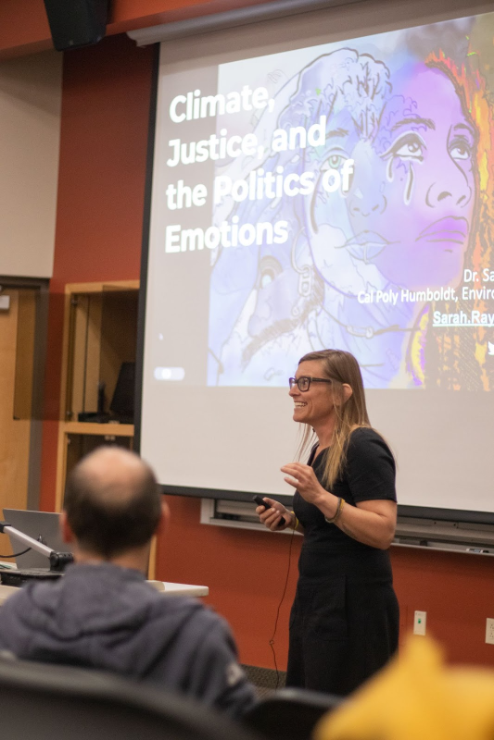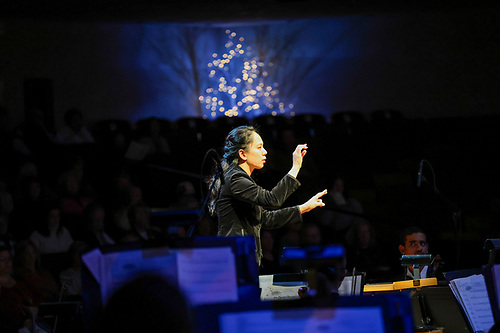Climate, justice and the politics of emotion
Dr. Sarah Jaquette Ray, chair of the environmental studies department at California State Polytechnical University, Humboldt in Arcata, California, visited Luther on Tuesday, April 18 to give a talk on how emotions such as fear, grief, and guilt can influence the perception of climate change. Ray’s book, “A Field Guide to Climate Anxiety”, was the topic of a recent Center for Ethics and Public Engagement (CEPE) book group as well as the topic of study for an environmental senior seminar class.
Students and faculty gathered in Valders 206 to hear Ray elaborate on the topics covered in her book. Ray spoke about the “sweet spot” where climate, justice, and emotions overlap. She asserted that the climate justice movement would be more effective if we collectively had a better understanding of the role emotions play in social movement success. She also discussed how climate emotion research has largely erased non-dominant experiences, thus “whitewashing” the conclusions made.
Ray also presented statistics that illustrated that black and latino people are more concerned about climate change than the white community. However, regardless of the scope of her research’s implications, Ray’s biggest motivation is helping her students.
“I was really worried about [my students], and the entire generation they represented, and my own kids,” Ray said. “I felt that their reasons for despair were legitimate and that their broken hearts were signs of their love for the world, things I admire immensely about my students. But I also felt that they needed something they weren’t getting from their education, an existential toolkit, as I imagined it, that I needed to figure out.”
Through her research, Ray discovered many tools and ways of understanding, reframing, and engaging with issues that could help the people who inspired her research. She aimed to synthesize and make accessible these tools in “A Field Guide to Climate Anxiety”.
Sarah Carlos (‘23), who is studying biology and environmental studies, attended and appreciated how Ray acknowledged how race can impact perceptions of climate change.
“As a person of color, I am glad that she points out these racial layers that are most often being ignored or forgotten,” Carlos said.
Professor of Philosophy and Environmental Studies Jon Jensen (‘89) was also in attendance. He had participated in the CEPE book group and found Ray’s talk on the role of emotions in the climate justice movement to be enlightening. Jensen also appreciated her efforts to broaden the conversation to include emotion as a political force.
“A lack of awareness of our emotions limits our ability to leverage them as tools,” Jensen said. “We don’t recognize the way that they are useful.”
Ray advised students experiencing powerlessness, apathy, despair and anger to consider these emotions as rational responses to the climate crisis. While they can often lead to disengagement and shut students down, she asserts that the solution lies in understanding these emotions.
“Learning how our emotions work, what causes us to have different kinds of emotions and why, and how different types of emotions shape our behavior are all really helpful for figuring out how to approach this monumental problem,” Ray said. “Just thinking differently about these issues with a little more information from social psychologists and others who have experienced comparable distress can be radically transformative.”
Ray is currently working on a book for educators with climate educator and researcher Jennifer Atkinson called “An Existential Toolkit for Climate Justice Educators” that will be released in 2024. The next CEPE event will be “In Search of Unconditional Hospitality: Latin American & Hispanic Student Experiences at Luther College”, presented on May 2 at 7:00 p.m. in Olin 102.





